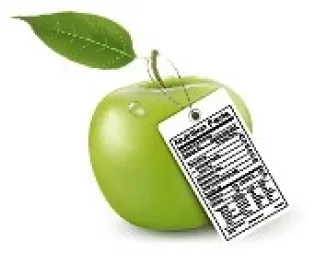The US Food and Drug Administration (FDA) opened a public comment period on November 12, 2015, seeking information and comments on use of the term “natural” on food labeling. The comment period was open until May 10, 2016. FDA received over 7,600 comments but has not yet issued any “natural” definition.
Anticipating FDA guidance, many courts stayed class actions involving allegations of the use of “natural” in food products under the primary jurisdiction doctrine, which permits a court to stay a lawsuit if doing so would give an administrative agency the opportunity to resolve the question at issue in the case. Now that it’s been more than a year since the comment period closed, some courts and parties are evaluating whether these cases should remain stayed. Plaintiffs argue that lack of FDA guidance weighs against a continued stay. But the US Congress and FDA made several statements over the past few months supporting food and beverage manufacturers’ requests for extending litigation stays.
First, on July 17, 2017, the House Committee on Appropriations specifically praised FDA for its efforts to define “natural” and regulate its use on food labels. The 2018 Appropriations Bill (if passed) will require FDA, within 60 days of passage, to provide a report on the timing of defining “natural” and creating a uniform national standard for the term. (H.R. Rep. No. 115-232.) Second, on October 10, 2017, the Wall Street Journal reported from its Global Food Forum that FDA Commissioner Scott Gottlieb stated that FDA is looking at how to define “healthy” and “natural” more uniformly. These statements suggest that FDA is actively evaluating how to define “natural.”
Just last week, the US District Court for the Northern District of California entered a stay on primary jurisdiction grounds, asking the parties to submit a status report if the FDA rulemaking process is not complete by January 15, 2018. Rosillo v. Annie’s Homegrown, Inc., No. 17-cv-02474-JSW (N.D. Cal. Oct. 17, 2017). Over the past two months, at least three judges decided to keep prior stays in place. Forsher v. The J.M. Smucker Co., Case No. 15-cv-07180-RJD-MDG (Doc. No. 38) (E.D.N.Y. Sept. 27, 2017) (stating court “will continue to wait, hopeful that the agency will act or at a minimum assure us that responsive agency action is forthcoming”); Quinones-Gonzalez v. Kraft Foods Group, Inc., No. 3:15-01892 (D. P. R. Sept. 15, 2017) (continuing stay until December 15, 2017); Scholder v. Riviana Foods, Inc., No. 2:16-6002 (Doc. No. 35) (E.D.N.Y. Aug. 23, 2017) (continuing stay until February 26, 2018 – six months from the submission of status report). At least three more cases remain stayed. Wong v. Newman’s Own, Inc., No. 1:16-cv-06690 (E.D.N.Y.); Perera v. Pacific Foods of Oregon, Inc., No. 3:14-02074 (N.D. Cal.); Kane v. Chobani, No. 5:12-02425 (N.D. Cal.)
Undeterred by these stays or the primary jurisdiction doctrine, plaintiffs’ lawyers filed 19 new class actions relating to “natural” claims between January and July 2017. Given the number of lawsuits and overwhelming response to FDA’s comment period, continued stays should be expected because courts otherwise risk reaching inconsistent conclusions that would hold nationwide food and beverage manufacturers to different standards. If FDA does not eventually act, however, a posture of further open-ended delay could become untenable.
For more information on the FDA’s “natural” comment period, see our prior post.



 />i
/>i

